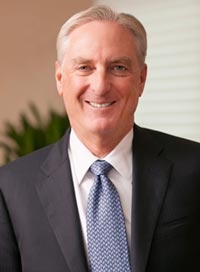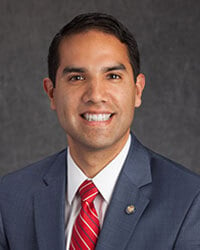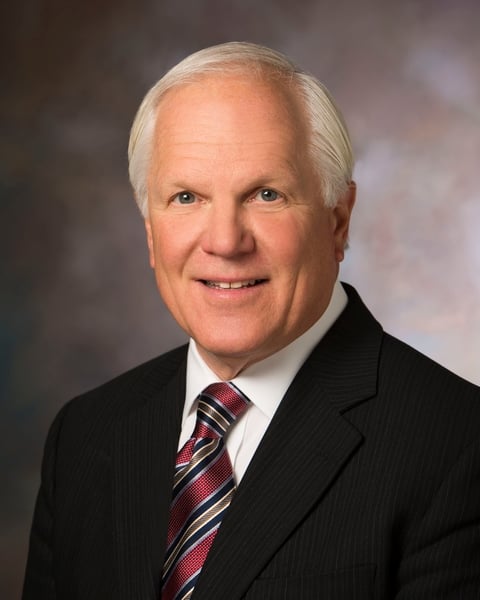Despite recent uncertainty about the government's commitment to value-based care, healthcare organizations remain focused on efforts to improve quality, patient care and employee engagement.
In 2017 the Centers for Medicare & Medicaid Services cancelled mandatory bundled payment models for hip fractures and cardiac care and also asked providers for feedback on other value-based payment models.
But healthcare organizations seem committed to the initiatives they have already put in place to improve quality. Indeed, last year healthcare leaders shared their successes, challenges and lessons learned as they worked to improve quality and patient outcomes. We’ve rounded up the most memorable quotes from these healthcare thought leaders about quality, the importance of physician engagement and how to achieve a culture of patient safety.
Here are six of our favorite quotes from our interviews and industry news and event coverage over the past 12 months:

1. "We had to challenge our old paradigms. Physicians are instrumental in setting the tone, and unless the physicians believe we’re on the right path we don’t have the kind of alignment that will help us move forward."
Gary Kaplan, M.D., chairman and CEO of Virginia Mason Health System, explained in a webinar this fall how the Seattle system improved patient safety using a patient-centered approach. Virginia Mason’s safety culture transformation began in 2001, Kaplan said, when system leaders realized that a physician-centered approach alone would not improve patient care.
2. "You need to start with the early adopters. You can’t start with folks who will fight you tooth and nail. You want to start with early successes and then evolve from there."
Felipe Osorno, an executive administrator at Keck Medicine of the University of Southern California, spoke at the Institute for Healthcare Improvement’s annual quality forum about strategies to engage physicians in improvement initiatives. The secret was designing a program in which physicians were respected for their competency and skills, their opinions were valued, they had good relationships with their medical colleagues, they had a broader sense of meaning in their work and they had a voice in clinical operations and processes, he said.

3. "We really want to attract folks who believe at their core, not just intellectually but in their heart, that kindness can heal. … If we do it right the first time and we assess candidates based on the fit of the organization, ideally we will have more engaged employees who deliver care in a way that is patient-centered.”
Wanda Cole-Frieman, vice president of talent acquisition at Dignity Health, talked to FierceHealthcare this summer after the California system was named by an online job platform as the best place to interview in 2017. Among its techniques: It assesses candidates’ behavioral competencies for human kindness, compassion and the human experience.
4. "To create a true culture of safety and reliability we need to engage everyone, and it can only be driven when we have strong alignment. Everyone can play a role in safety."
Gary Yates, M.D., a partner in strategic consulting at Press Ganey, explained in an interview that building and promoting a culture of safety at healthcare organizations is important to retain current staff members, but is also an especially effective recruiting tool for millennials, who will make up half of the workforce by the year 2020.
“People talk, and people ask about the culture inside different organizations,” Yates said. Putting the spotlight on safety and quality could “tip the scales” for young people.

5. "Our focus is safety, to fundamentally be a safe hospital. If we start there or if any hospital starts there, patient experience will take care of itself, quality metrics will take care of itself as will employee morale."
FierceHealthcare caught up with Nicholas “Nico” R. Tejeda, CEO of The Hospitals of Providence Transmountain Campus in El Paso, Texas, at an American College of Healthcare Executives event. He talked about opening a new teaching hospital and establishing the culture of the organization from the beginning and with every hire.
There are no acceptable levels of errors, he said. And while it may be nearly impossible to achieve zero incidents, he still wants the organization he leads to strive for perfection.

6. "We don’t see quality as just a clinical goal. It’s an enterprisewide priority that encompasses customer service, compliance and wellness."
A few years ago, Anthem decided to make a "rigorous" effort to boost the quality of its plans. And it's demonstrating results, Anthem's then-CEO Joseph Swedish said during the 2017 AHIP Institute & Expo. Now, more than half of the insurer's Medicare Advantage enrollees reside in 4-star plans, compared to just 22% the year before.